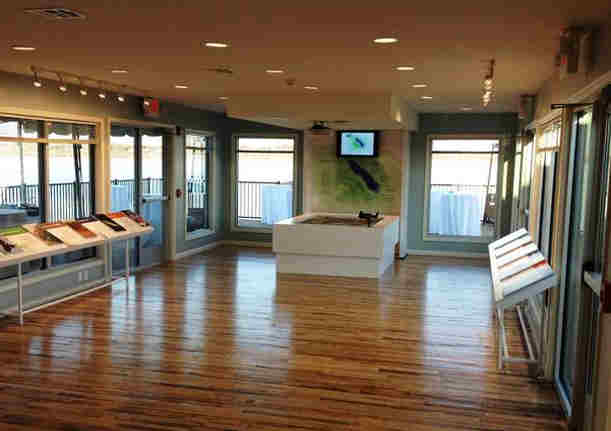Although modular buildings in the city of Baltimore account for a small percentage of new construction, innovative solutions are in the works. Modular construction is not just for temporary classrooms and construction storage anymore; it can serve the needs of diverse customers in many different settings.
Modular buildings use prefabricated construction to complete projects about 40% faster than traditional construction. The process is resource efficient – using less labor and fewer materials – and has a reduced impact on the environment.

Advantages of modular construction include:
1. High quality:
Modular buildings meet or exceed all state and local building codes; the same codes as site-built projects. Factory fabrication is more precise and under stricter control than traditional construction, with rigorous quality control and inspection processes at every phase. By utilizing high quality construction materials, prefab modular buildings cannot be distinguished from their traditionally built counterparts once they have been assembled.
2. Substantial savings:
Modular building construction offers an average savings of 20% off conventional construction costs. Both on-site and off-site work takes place at the same time, resulting in additional savings in total construction time.
3. Speed of completion:
Modular construction is at least 40% faster than conventional construction. Factory production is not affected by weather delays. Modules are designed, engineered, fabricated, pre-assembled and transported to a prepared site for assembly within a few short months.
4. Flexibility:
Prefab buildings can be adapted for any site or any business purpose. Modular buildings are well-suited to offices, banks, healthcare centers, retail stores, restaurants and cafes, warehouses, multi-family homes, classrooms, dormitories, worship centers, and a wide range of other uses. They can be mobile or permanent, single-story or many stories.
5. Reduced waste:
Lean manufacturing in the factory reduces building material waste and cuts costs.
6. Better safety: Factory fabrication reduces the risks of jobsite accidents and reduces the liability and security issues that often arise from subcontractors on the building site.
7. Technical innovations:
A modular building can be constructed of wood, steel, or concrete; the same materials as a traditionally built building.Architecturally they can be designed to blend seamlessly with any type of surrounding architecture. And innovative “clear span” framing systems allow for just about any configuration.
8. Sustainability:
Modular construction is environmentally friendly. Most new modular units are constructed of recycled steel, making them strong, fire-resistant and mold-resistant. There are additional “green” options, such as the installation of energy-efficient utilities, eco-friendly insulation, no-VOC or low-VOC (volatile organic compounds) interior wall and floor treatments, and efficient automatic sensors for lights and heating systems.
Today, modular builders work with sophisticated levels of design and construction that rival their conventional counterparts. Most manufacturers, such as Modular Genius in Joppa, Maryland, have in-house architects who can accommodate a wide variety of requirements. Their high specification, architect-designed modular construction systems are used for modular housing, offices and budget hotels around the world.
As in urban areas across the nation, “millennials” (19- to 33-year-olds) are primarily responsible for the growth in Baltimore’s population. They are professionals who want to live downtown, in areas with a lot of amenities – cafés, restaurants, nightclubs, and other neighborhood attractions – but they can’t afford high rents.
Modular building is the ideal solution for achieving more affordable construction solutions in the city of Baltimore and maintaining the city’s population growth trend. If you are looking for a modular building company that services the Baltimore, Maryland region we highly recommend Modular Genius.
